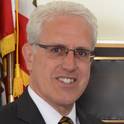
Article
What and How do Students Learn in an Interprofessional Student-Run Clinic? An Educational Framework for Teambased Care
Medical Education Online
(2016)
Abstract
Background: The student-run clinic (SRC) has the potential to address interprofessional learning among
health professions students.
Purpose: To derive a framework for understanding student learning during team-based care provided in an
interprofessional SRC serving underserved patients.
Methods: The authors recruited students for a focus group study by purposive sampling and snowballing.
They constructed two sets of semi-structured questions for uniprofessional and multiprofessional groups.
Sessions were audiotaped, and transcripts were independently coded and adjudicated. Major themes about
learning content and processes were extracted. Grounded theory was followed after data synthesis and
interpretation to establish a framework for interprofessional learning.
Results: Thirty-six students from four professions (medicine, physician assistant, occupational therapy, and
pharmacy) participated in eight uniprofessional groups; 14 students participated in three multiprofessional
groups (N50). Theme saturation was achieved. Six common themes about learning content from uniprofessional
groups were role recognition, team-based care appreciation, patient experience, advocacy-/systemsbased
models, personal skills, and career choices. Occupational therapy students expressed self-advocacy, and
medical students expressed humility and self-discovery. Synthesis of themes from all groups suggests a learning
continuum that begins with the team huddle and continues with shared patient care and social interactions.
Opportunity to observe and interact with other professions in action is key to the learning process.
Discussion: Interprofessional SRC participation promotes learning ‘with, from, and about’ each other.
Participation challenges misconceptions and sensitizes students to patient experiences, health systems,
advocacy, and social responsibility. Learning involves interprofessional interactions in the patient encounter,
reinforced by formal and informal communications. Participation is associated with interest in serving the
underserved and in primary care careers. The authors proposed a framework for interprofessional learning
with implications for optimal learning environments to promote team-based care. Future research is suggested
to identify core faculty functions and best settings to advance and enhance student preparation for future
collaborative team practice.
Keywords
- student-run clinic,
- interprofessional education,
- focus group,
- theoretical framework,
- underserved
Disciplines
Publication Date
August 5, 2016
DOI
10.3402/meo.v21.31900
Citation Information
Désirée A. Lie, Christopher Forest, Anne Walsh, Yvonne Banzali, et al.. "What and How do Students Learn in an Interprofessional Student-Run Clinic? An Educational Framework for Teambased Care" Medical Education Online (2016) Available at: http://works.bepress.com/christopher-forest/3/
Creative Commons license

This work is licensed under a Creative Commons CC_BY International License.
